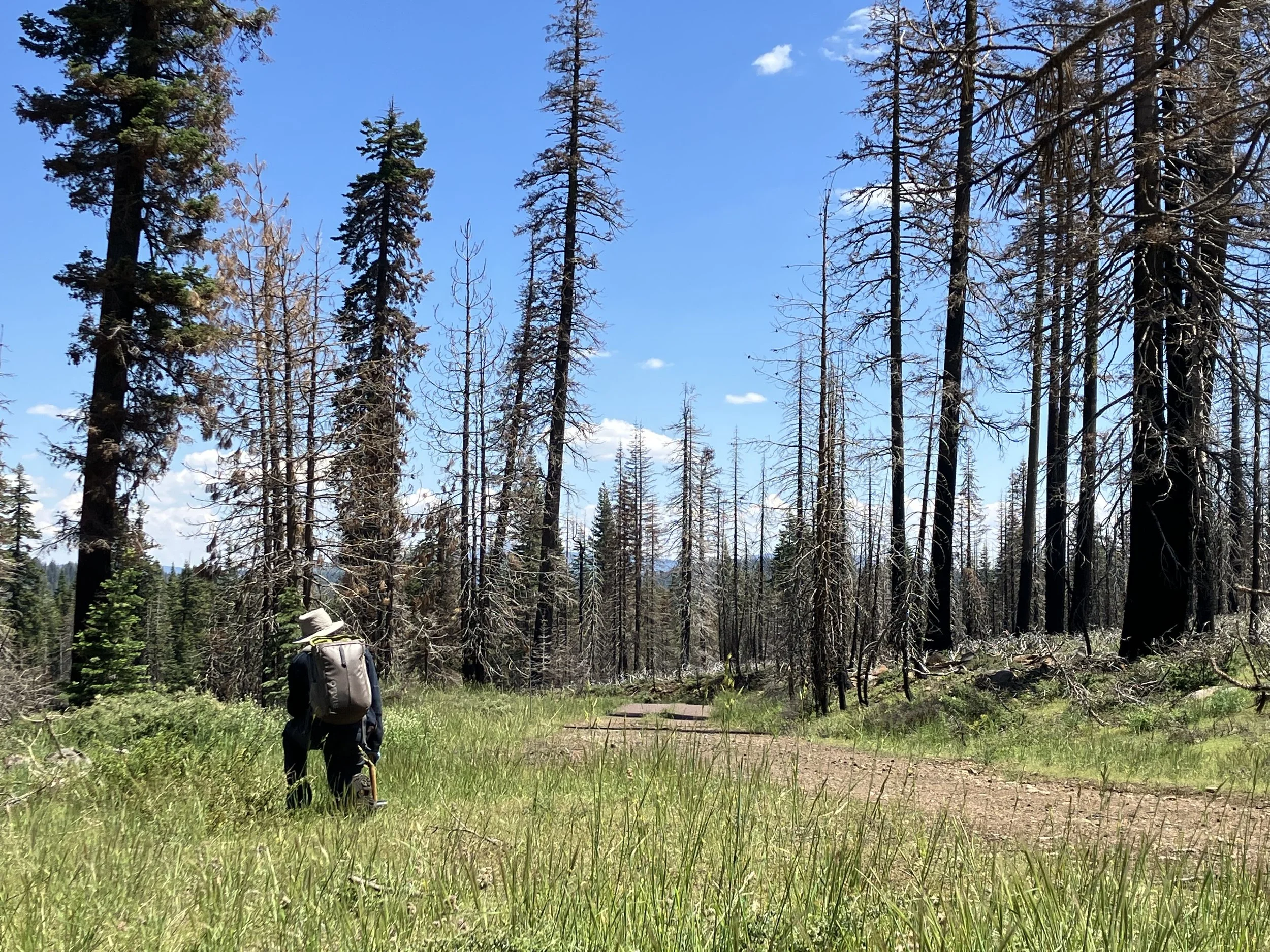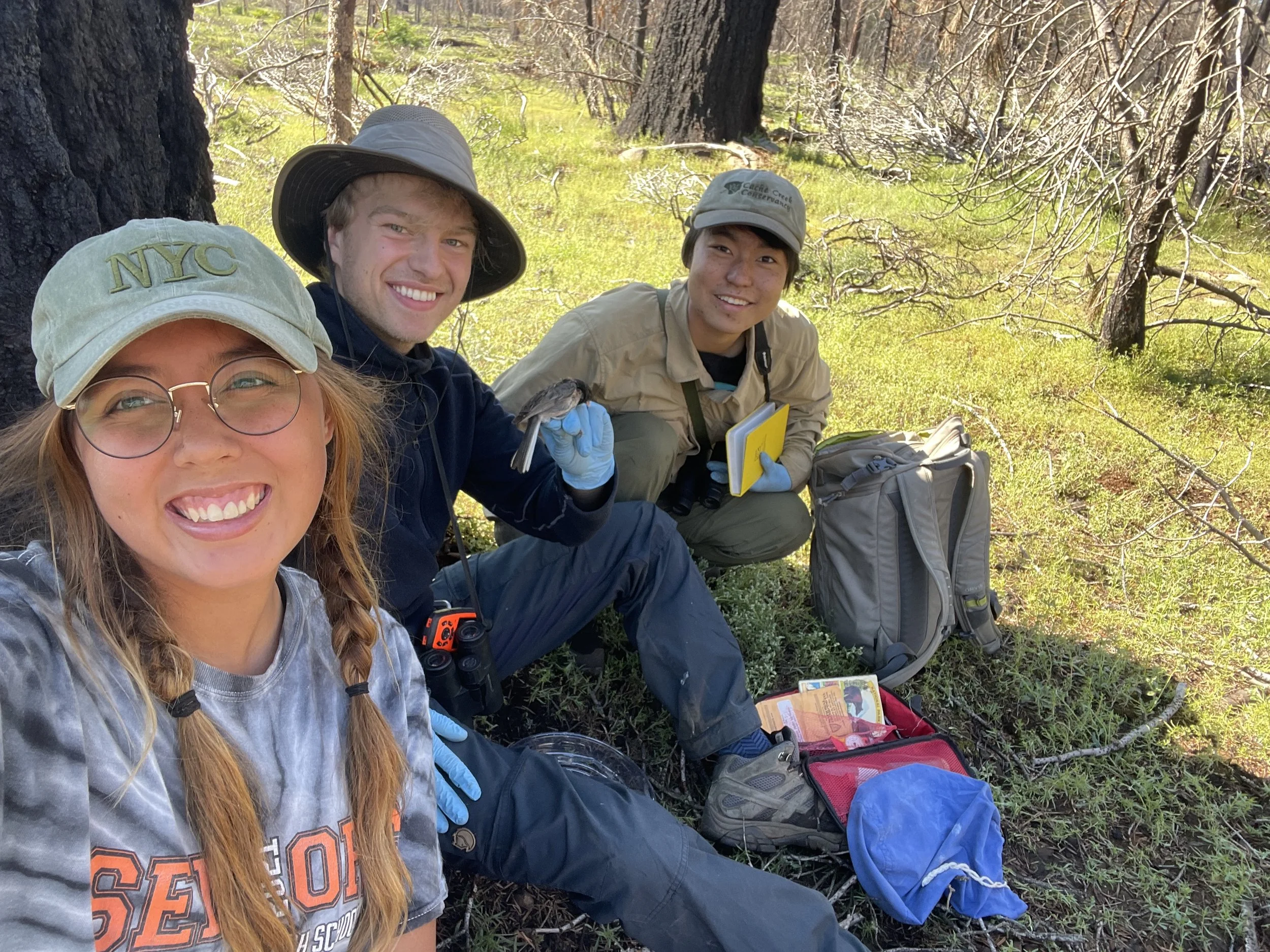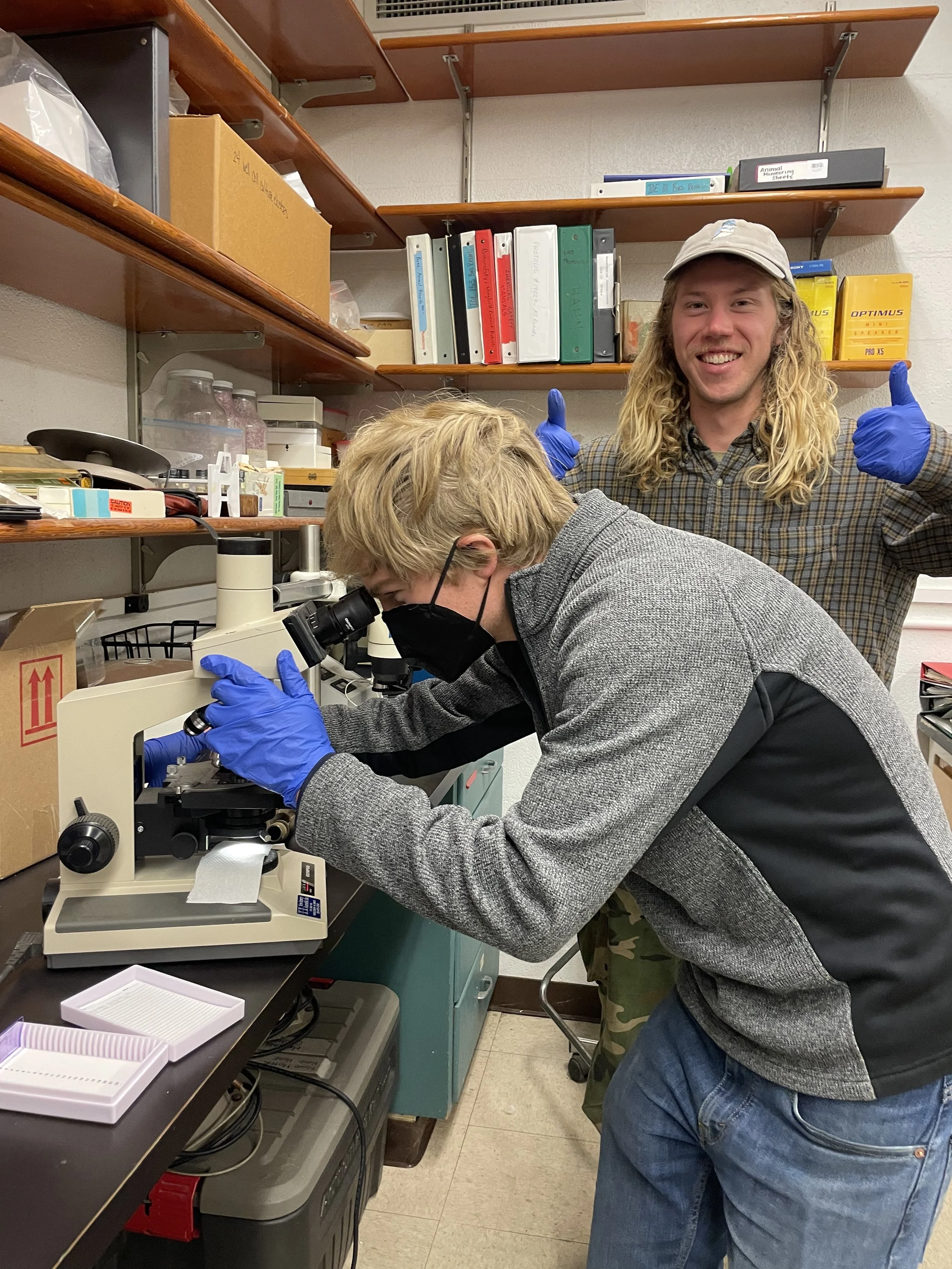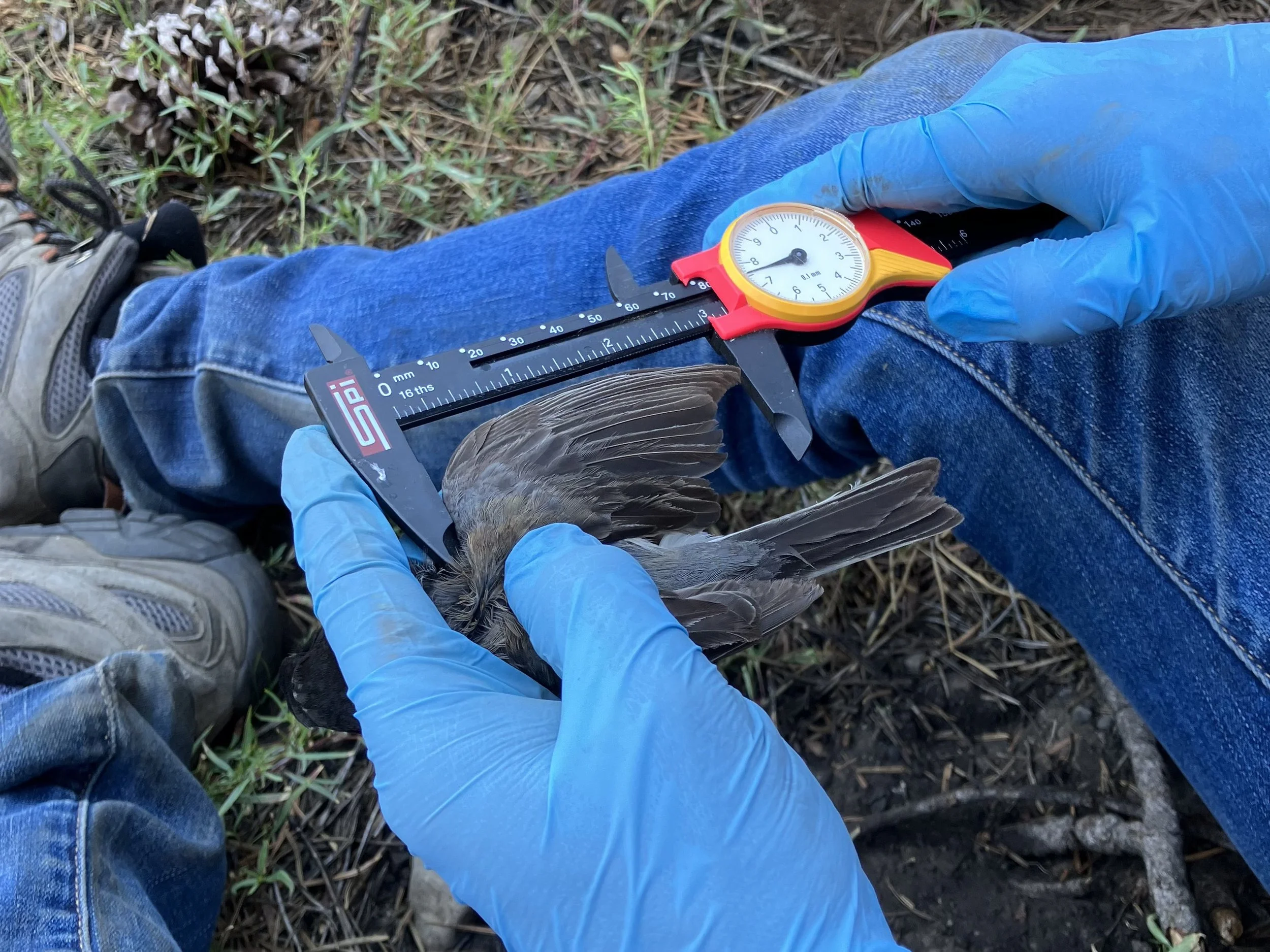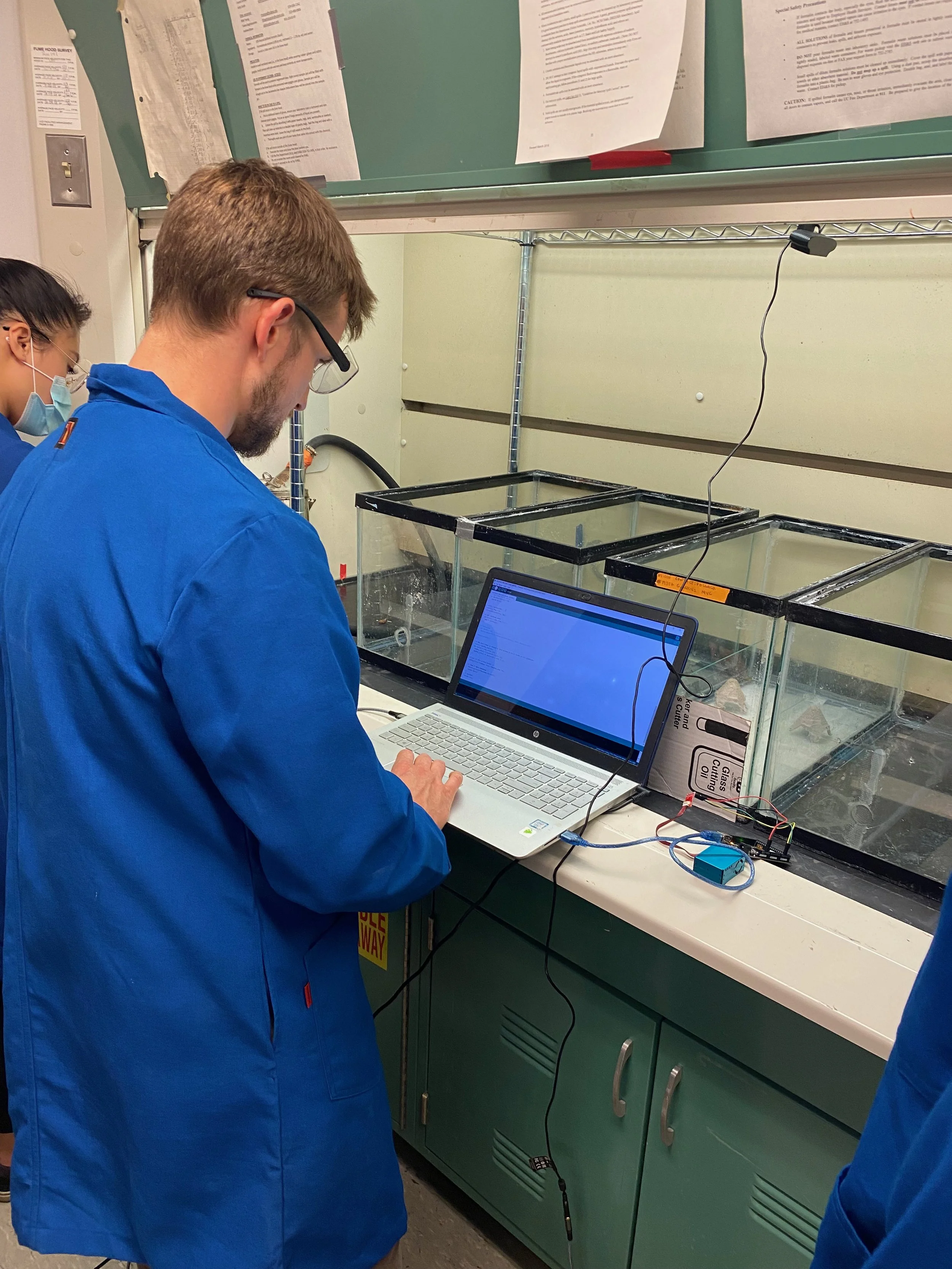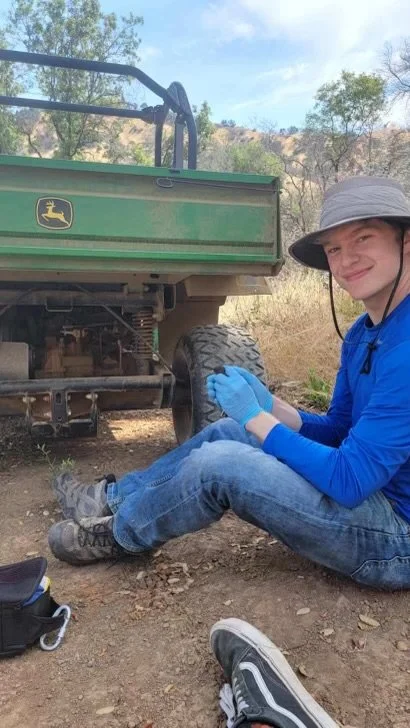My Research
Behavior in a Changing World
The next one hundred years are absolutely critical for our species. Even now, massive human-driven changes are sweeping across our planet. How might these shifts be shaping the future of biological life?
I am fascinated with animals and how they are coping with our rapidly-shifting biosphere. My research focuses on how animals use different behavioral strategies to navigate especially harsh environments, such as those created by wildfires and human development.
Currently, I am studying how Dark-eyed Juncos in Northern California use behavioral and foraging strategies to survive in post-wildfire habitats. Additionally, I'm working on a study in the Sacramento area with fellow scientists Sage Madden and Ian Haliburton. We're researching how Black Phoebes- normally suited to living alongside rivers- are so abundant in cities like Sacramento. Finally, I'm working with Richard Szeligowski on a laboratory study examining the effects of wildfire smoke, predation, and pesticides on the behavior and personality of arthropod species.
By conducting these studies in tandem, I hope to build an understanding of how environmental change affects animals in the moment, in the immediate aftermath, and in the decades following major disturbances. With all three, we'll have a more complete picture about the future of animal behavior in an ever-changing world.
I'm currently processing my collected data from the 2023-2025 field seasons, and will update soon as results start to come in! Our preliminary findings suggest that birds in postfire habitats exhibit heightened aggression. Why might this be? Stay tuned!
Current undergraduate assistants:
Aidan Reynolds, Ryann Su, Joana Rose, Kersten Plicner
Graduate student collaborators:
Sage Madden, Ian Haliburton, Richard Szeligowski
